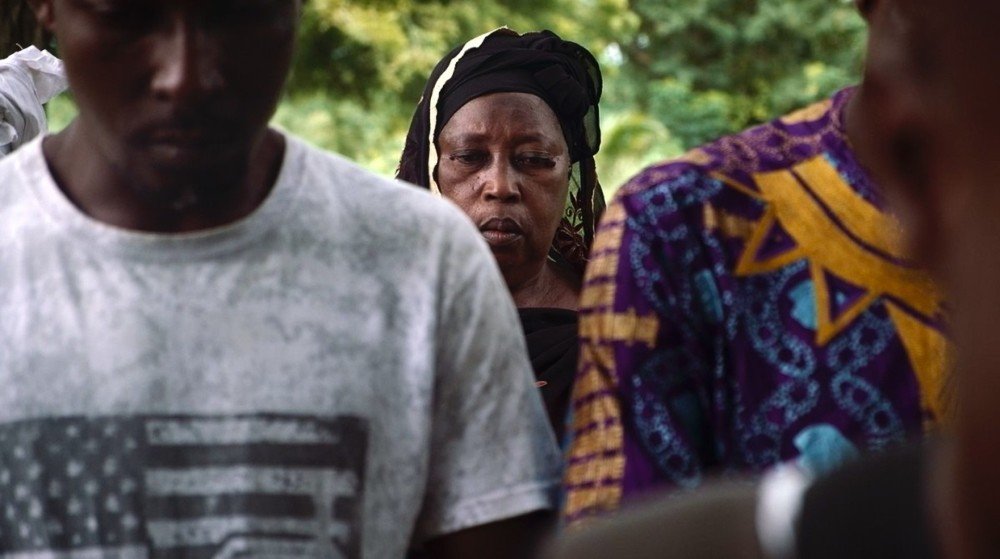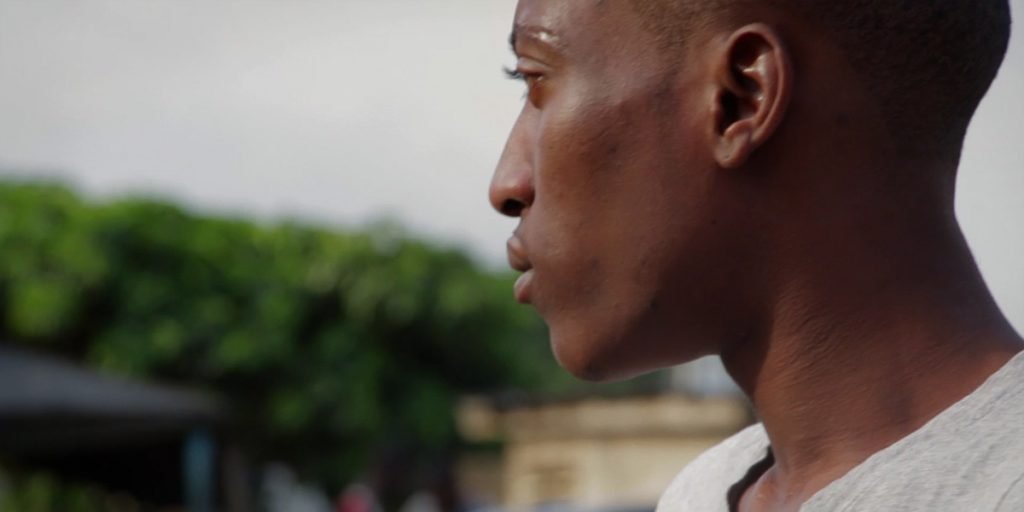After The Crossing (Traverser) is an intimate exploration of hope, suffering, and camaraderie that sheds light on lives lived in the shadows.
Joël Afakou’s latest film follows the experiences of Inza, a young Ivorian man who has survived the treacherous crossing to Europe, traversing desert and ocean to eventually arrive in Turin. This film focuses on a subject largely missing from public consciousness. Images of makeshift rafts in the Mediterranean Sea, and the tragic stories of those who did not survive the crossing, are something we have sadly become accustomed to seeing. However, it is what comes after, the struggle to become established, that is unknown to many. By following Inza from the Ivory Coast to Italy, to France, Afakou gives a human face to migration, revealing the very real sacrifices of life after the crossing.
The film opens with the funeral of Inza’s father, the event that ultimately leads him to make the journey to Europe. After seeing his family suffer without his father’s income, Inza decides to leave the Ivory Coast for Europe, in hopes of finding work and a way to support his loved ones. What follows is another scene of family. Though they may not all be blood relations, when Inza arrives in Italy he joins young men and women who have also made the crossing, many of whom he knew from home, and is welcomed with a feeling of unwavering togetherness. A sense of camaraderie and shared experience truly prevails in this film, and what seems an exceptional story is revealed to be tragically commonplace.
This is most overtly shown in a casual conversation around a kitchen table, where a handful of these young men discuss their situation, the politics of their home nations and their struggle to find work and support in Europe. The flippancy with which they talk of the crossing, of those they knew who didn’t survive it, of life in Libyan jails, and of civil war really puts into focus how much suffering these communities have become accustomed to. What most would consider intense trauma becomes a tale told over dinner, this film really forces our lives into perspective.
In a public statement, director Akafou states how the film is intended to highlight the lost illusions of young African men, to showcase how difficult it is for them to make the journey and be met with the realisation of how illusionary their dreams of European living really are. After arriving on Italian shores Inza and his friends are housed in a ‘Campo’, a temporary housing facility while they await legalisation. With stays in Campos sometimes lasting years, the frustration felt by its occupants is palpable: ‘It is like being imprisoned…We came here for a better life, not to live in a Campo’.

It is during these early days in the campo that we clearly see Inza’s suffering. In a rare moment of unfiltered emotion, Inza breaks down on the phone to his family, and we see a vulnerable, frightened young man who misses his home. Afakou manages to establish a certain level of relatability here, eliciting true empathy from the audience that may, for a second, be able to comprehend how these men are feeling. A moment that is cleverly and tenderly captured without excessive sentimentalism.
An ability to make the most unimaginable situations seem accessible is perhaps this film’s greatest achievement. Inza is a man who has faced unimaginable challenges and seen unthinkable suffering, but he is also a 26-year-old man with relationship issues and a favourite football team. The three women with which Inza has is involved subtly highlight both his humanity and his fragility. In Italy, he stays with Michelle, his girlfriend, who takes him in to live in her house when he is unable to stay in the Campo.
After deciding to attempt crossing the French border, he relies on the support of other ‘girlfriends,’ Aminata and Brigitte, who at various intervals prove to be unreliable sources of support. It is clear that Inza has, on some level, used his relationships with these women to aid the practicalities of his journey and has perhaps exploited their feelings. However, in a conversation with his friend he does appear to be conflicted, and remorseful for his actions.
To see relationship drama interwoven with the harsh realities of migrant life aids the human quality of the film. This is illustrated at the film’s close in a truly saddening scene. Aminata and Brigitte have failed to deliver on their promises of accommodation once Inza arrives in Paris. He stands outside the Garr Du Norde all day and, as night falls, he stands alone and sends a message to Brigitte reading ‘don’t leave me to sleep in the street’. A simplistic image of downtrodden hopes and vulnerability, Akafou expertly encapsulates the precariousness of life after the crossing.
After the Crossing (Traverser) premiered at the Open City Documentary Festival, taking place 8-14 September in London, and 13-23 September online.

